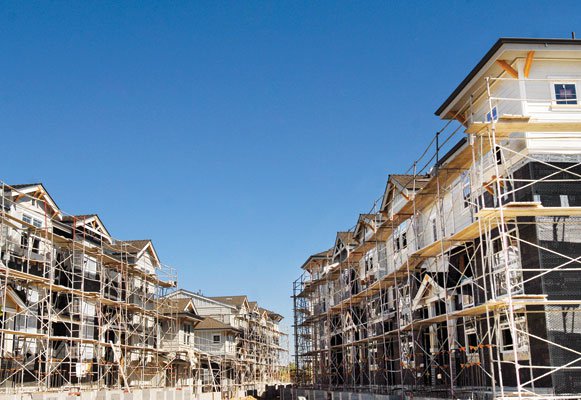The Santa Clara County Board of Supervisors Aug. 31 approved a new 73-unit affordable housing project in Morgan Hill that will include homes for agricultural workers.
The project, known as Royal Oak Village, will bring more living options to some of South County’s most underserved, low-income residents, according to county officials.
The complex, to be located at 15440 Monterey Road in Morgan Hill, will include 30 apartments for farmworkers, 18 for rapid rehousing to help homeless individuals and families with special needs, and 24 units for low-income families, according to county staff. There will be one manager-occupied unit.
A $9.9 million investment into the project from the county will come from the Measure A affordable housing bond approved by voters in 2016, along with $400,000 in support from the City of Morgan Hill.
“The housing bond has made a tremendous difference so far, but many of these developments have really focused on the county’s urban core despite a huge need for more affordable housing in rural areas,” said Mike Wasserman, president of the Board of Supervisors. “Farmworkers are essential community members who are critical to our agricultural success. This project takes us one step closer to ensuring they and their families have a safe and affordable place to live.”
At Christopher Ranch in Gilroy, most of the farm’s 800 full-time employees travel far distances to get to work, said owner Bill Christopher.
“Very few employees can afford to live in the Gilroy and Morgan Hill area,” Christopher said. “There is a big need for housing here. I’m just glad someone is spearheading this effort and wants to do something for the agricultural workers in Santa Clara County.”
The agricultural industry in Santa Clara County employs more than 8,000 residents and contributes around $830 million annually to the economy. Despite this, there is an estimated shortfall of 1,400 seasonal and 700 long-term housing units to support the employment demands of the industry.
“Agricultural workers are the backbone of our food supply—we need to increase affordable housing opportunities so they can live closer to the essential work they do for all of us,” said Miguel Màrquez, Santa Clara County Chief Operating Officer. “A big piece of addressing the housing and homelessness crisis in our area is prevention. These types of projects are part of a long-term, upstream goal of preventing members of our community from falling into homelessness.”
Since voters approved Measure A in 2016 to address homelessness in Santa Clara County, the board of supervisors has committed about $690 million in housing bond funds for low- to middle-income residential developments, along with a first-time homebuyer down payment assistance program. With the approval of Royal Oak Village, more than 3,600 units of affordable housing across 35 developments have been funded by Measure A.
Since January 2020, as the Covid-19 pandemic upended lives and sent many families to the edge of financial and housing insecurity, Santa Clara County housed nearly 5,000 people and cut the number of newly homeless residents by almost 30% in the past 12 months, according to county staff. To maintain that momentum, it will be critical to continue building partnerships to collectively address the area’s housing crisis, with a key piece being housing for agricultural workers.
“We are thrilled to partner with the County to serve our farmworkers, unhoused residents, and workforce,” said Morgan Hill Mayor Rich Constantine. “Quality and vibrant farmworker housing is long overdue. It brings me great joy to see this development move forward.”
Constantine and Assemblymember Robert Rivas drafted letters of support for Royal Oak Village.
“California’s farmworkers—who are overwhelmingly low-income—struggle with housing insecurity under even the best economic conditions. Workers and their families are often left with no choice but to sleep in their vehicles, in illegally converted garages, and sometimes even outdoors,” Rivas said. “Unless we create affordable housing to assist our most vulnerable populations, we will not make a significant dent in the ongoing housing crisis.”








